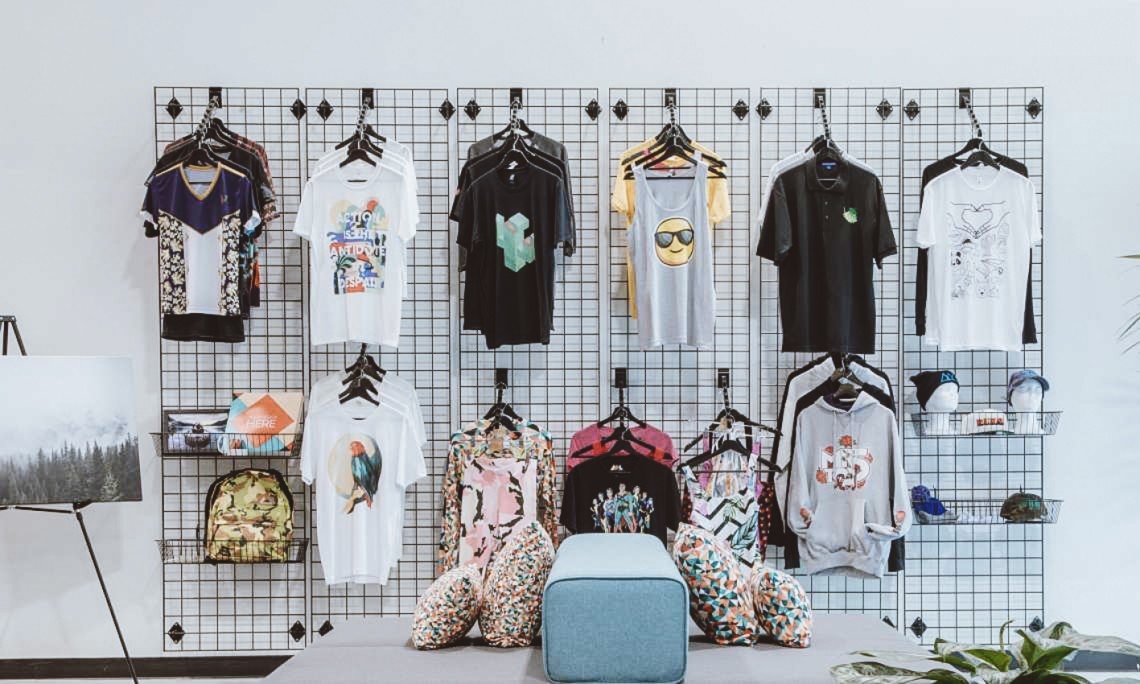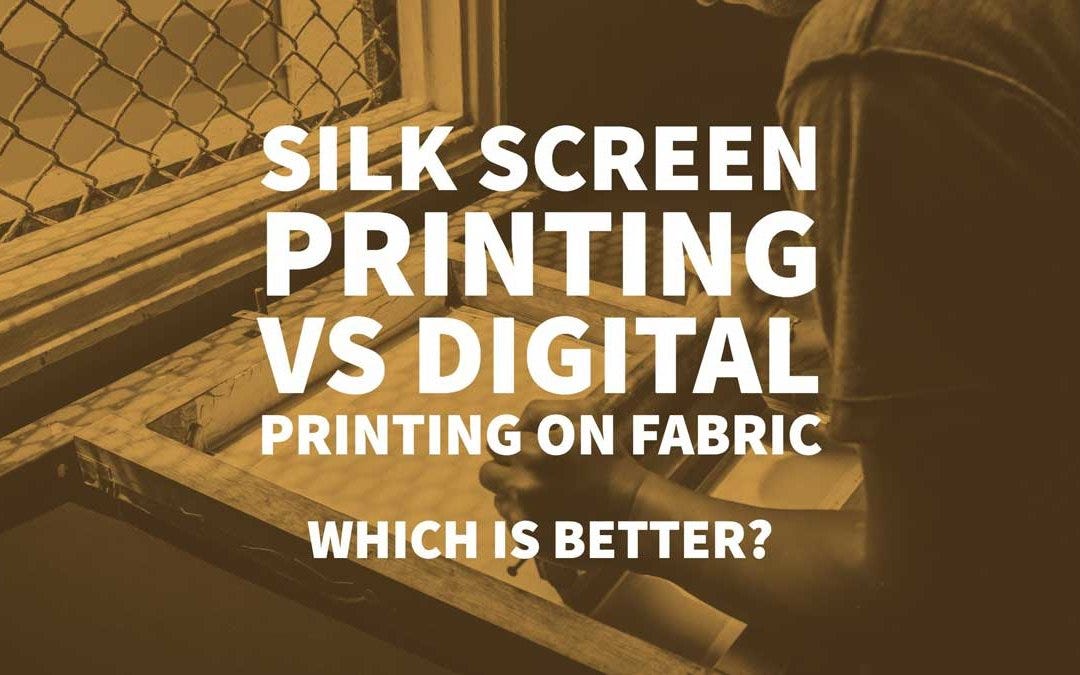Unknown Facts About Tx Tees
Unknown Facts About Tx Tees
Blog Article
3 Easy Facts About Tx Tees Explained
Table of ContentsRumored Buzz on Tx TeesAll about Tx TeesIndicators on Tx Tees You Need To KnowWhat Does Tx Tees Do?Indicators on Tx Tees You Should KnowNot known Incorrect Statements About Tx Tees The Basic Principles Of Tx Tees
Include up various other expenses, like the number of utilities it takes to run the shop and the cost of ink and emulsion per layout. Take the print below.The emulsion ought to just be a couple of cents because you 'd only need to coat one display for this task. Exactly how much should you bill per shirt to make a revenue? Normally, printers attempt to make up to 45% profit on a print job. Right here's a table to assist you establish that: overall expense per product percent of wanted revenue as a decimal (instance:.25 or.45) profit made per item per job Now let's speak about the profitability of DTF.

With DTF, you can print a handful of t shirts, or simply one. Both screen printing and DTF have their particular niches in the globe.
9 Simple Techniques For Tx Tees
The very best means to know? Ask about and see what print stores like yours are doing. screen printing shop. Attempt both out and see which you like better
When you're selecting what sort of printing approach to use for publishing your artwork designs on your garments, it is necessary that you recognize the distinctions in between these 2 strategies so you can optimize outcomes while reducing expenses. Screen printing is the most frequently made use of technique for printing designs on textiles.
DTG printing is likewise called place or straight to garment printing because it prints only what is needed rather than making a screen as display printers do. https://peatix.com/user/21577359/view. Display printing works by display filler squeegee screen printing ink display mesh screen, after that transferring the image to garment making use of warm and/or pressure
The DTG printer utilizes special dye-sublimation inks that are used into a pre-designed photo by a digital printing system. The inks become component of the material, permitting lively shades and outstanding detail. It's additionally referred to as place or direct to garment printing because it prints just what is needed rather of making a display as screen printers do.
Tx Tees Fundamentals Explained
It's much faster - you can print a fullcolor picture in mins, as opposed to hours for display printing. Second, there's no established time or expenses included - you can publish any type of design you like, without having to create a screen first. Third, there's no waste - since display printers screen print one design each time, they have to screen each color individually.
The paper is really pricey and can just be used once. Once it's printed on, it has to be disposed of. - The preliminary acquisition rate is less than the in advance financial investment of DTG printers- You can print multi-color designs one screen at a time as opposed to needing to publish each color independently like DTG printing.

More About Tx Tees
Instead of utilizing screen mesh as screen printers do, dye sublimation printers utilize laser modern technology to transfer your pictures onto garments or paper. A warmth process transfers the dye from its solid-state straight right into the gas phase which consequently integrates it onto textile substrates when they are quickly warmed to high temperatures under high pressure.
Sublimation printing is green. It utilizes much less water than screenprinting, and due to the fact that it does not entail making use of unsafe solvents, it's safe for all sorts of clothing. The color sublimation inks are additionally odor-free when healed, unlike screen printers that utilize hazardous chemicals during the screen printing process that leave behind an undesirable smell.
They additionally conserve cash on costly equipment like exposure systems considering that color sublimation printers don't require a UV exposure unit or a flash cure stove that is generally utilized in display printing (custom t-shirt design). What is direct to garment printing (DTG Printing)? DTG printing is a digital screenprinting process that publishes directly onto fabric using specialized inkjet printers
The Single Strategy To Use For Tx Tees
DTG printing uses lots of benefits over traditional screenprinting, consisting of the capability to print photographic top quality pictures, greater shade vibrancy, and the capacity to publish styles on darker fabrics. DTG printers function by heating up the textile ink until it becomes a gas. The gas after that permeates the material, bonding with the fibers to develop a long-term print.

Screen printers just prepare their screen then begin publishing till they lack item or ink.- There is a variety of knowledgeable display printers all over the globe, which can be practical for novices. - It's a slower process - display printers usually need to wait on the ink to dry before they can publish the next color- Screen printers require hand-operated labor, so there's a greater understanding curve and it takes longer to generate a high-quality layout- Display printing isn't as precise as DTG printing, so you may get some "blood loss" of shades from one part of the image onto one more otherwise done appropriately.
How Tx Tees can Save You Time, Stress, and Money.
Nonetheless, rather than making use of screen mesh as display printers do, color sublimation printers make use of laser innovation to move your pictures onto garments or paper. A warm process transfers the color from its solid-state straight into the gas stage which in turn integrates it onto fabric substratums when they are swiftly heated to heats under high stress.
Sublimation printing is green. It uses much less water than screenprinting, and due to the fact that it doesn't include making use of unsafe solvents, it's safe for all sorts of garments. The color sublimation inks are also odor-free when treated, unlike screen printers that use dangerous chemicals throughout the screen printing procedure that leave an unpleasant smell.
They additionally conserve money on expensive tools like direct exposure units considering that color sublimation printers do not require a UV exposure unit or a flash treatment oven that is usually utilized in display printing. What is straight to garment printing (DTG Printing)? DTG printing is an electronic screenprinting process that publishes directly onto material utilizing specialized inkjet printers.
Tx Tees Things To Know Before You Buy
DTG printing offers several benefits over standard screenprinting, consisting of the official statement capability to print photographic high quality images, greater shade vibrancy, and the ability to print layouts on darker textiles. DTG printers function by heating the textile ink up until it develops into a gas. The gas then penetrates the material, bonding with the fibers to produce a long-term print.
Report this page